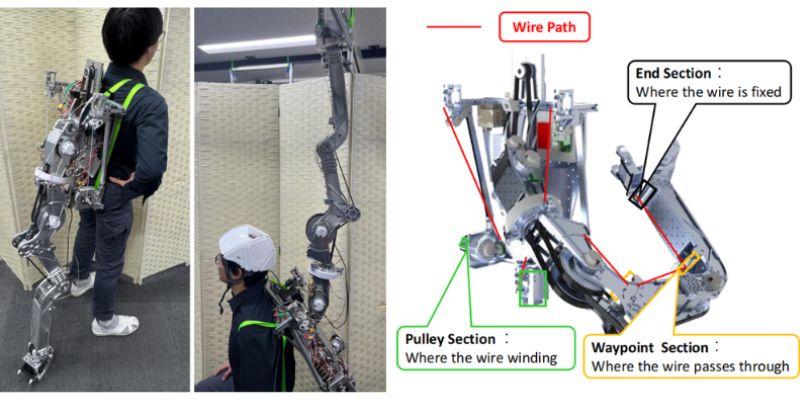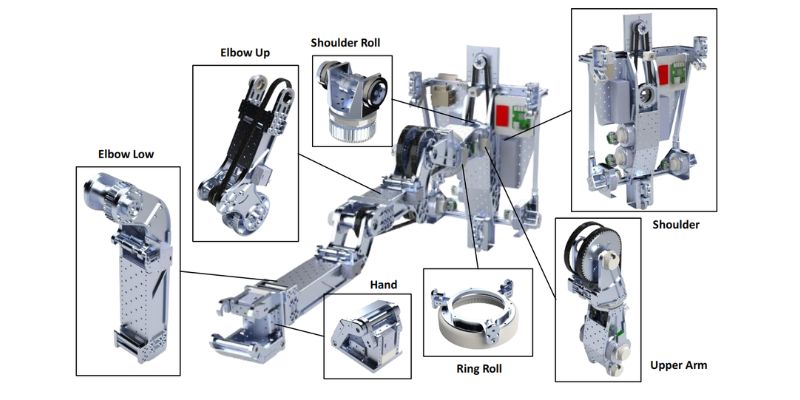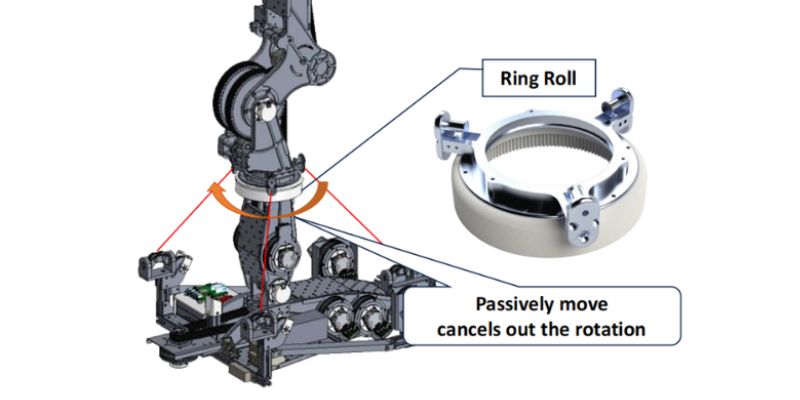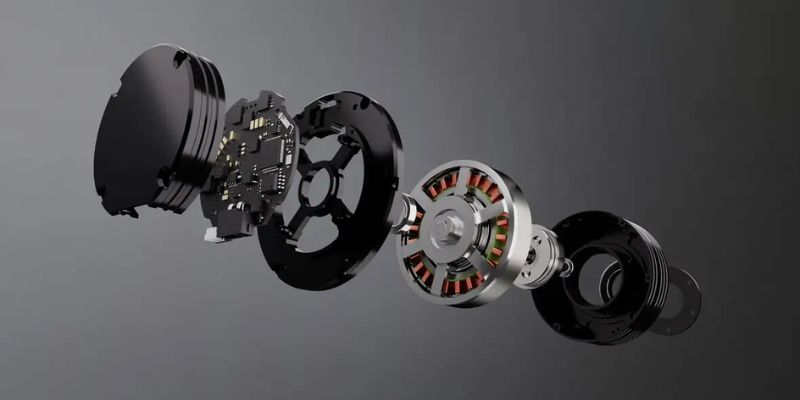Vlimb: A Wire-Driven Wearable Robot Developed by the University of Tokyo, Powered by CubeMars AK60-6 Motor

The University of Tokyo research team has introduced Vlimb, a wire-driven wearable robot designed to enhance human capabilities, providing users with power and flexibility beyond natural limbs. As a Supernumerary Robotic Limb (SRL), Vlimb offers additional mechanical limbs to extend human reach, lift heavy objects, and perform intricate manipulation tasks. The innovative design of Vlimb strikes a balance between strength and flexibility while maintaining a lightweight structure for user comfort, making it suitable for various applications in industries like healthcare, rescue, and manufacturing.
Key Features and Technological Advantages

Vlimb’s dual-mode functionality is one of its core innovations. By adjusting the wire routing, Vlimb optimizes torque in power mode, allowing it to lift heavy loads such as 60 kg with ease. In manipulation mode, the robot restores the wire connections to increase its degrees of freedom, enabling the precise handling of objects, thus providing versatility for both heavy lifting and fine manipulation tasks.

The introduction of a passive ring structure addresses the common issue of cable entanglement in traditional wire-driven systems. Bearings at the joints allow the wires to rotate freely, preventing tangling while enabling 360-degree movement. This design significantly expands the robot's range of motion, making it as flexible as, or even more so than, human limbs.
Vlimb’s lightweight construction, achieved using aluminum alloy and advanced machining techniques, reduces its total weight to just 16.3 kg. This allows the robot to remain easy to wear and operate while providing the necessary power for demanding tasks.
Power System and CubeMars AK60-6 V1.1 Robotic Actuator

Vlimb’s power system is driven by the CubeMars AK60-6 V1.1 KV80 brushless motor, a crucial component for the robot’s performance. The motor provides a peak torque of 9 Nm, meeting the demands of heavy-duty tasks in power mode. Its compact design seamlessly integrates with Vlimb’s wire-driven system, concentrating the power at the base and optimizing overall weight distribution. The AK60-6 motor ensures that Vlimb delivers both stability and responsiveness, critical for the robot’s performance in a wide range of applications.
Performance Validation
Experimental results confirm Vlimb’s exceptional performance in various scenarios. In manipulation mode, Vlimb exhibited wide-angle posture control, showcasing its flexibility. It successfully grasped and handed over a water-filled plastic bottle, demonstrating its precision in fine motor tasks. In power mode, Vlimb lifted a 61 kg load with ease, proving its robust power output.
Applications and Future Prospects
Vlimb has broad application potential in healthcare, industrial tasks, rescue missions, and entertainment. The research team plans to further optimize control strategies to improve human-robot collaboration, with ambitious goals such as enabling complex three-dimensional movements like parkour.
The Vlimb project highlights the University of Tokyo’s leadership in wearable robotics, while the CubeMars AK60-6 V1.1 KV80 robotic actuator plays a key role in delivering the robot's high performance, paving the way for more advanced applications in robotics.
